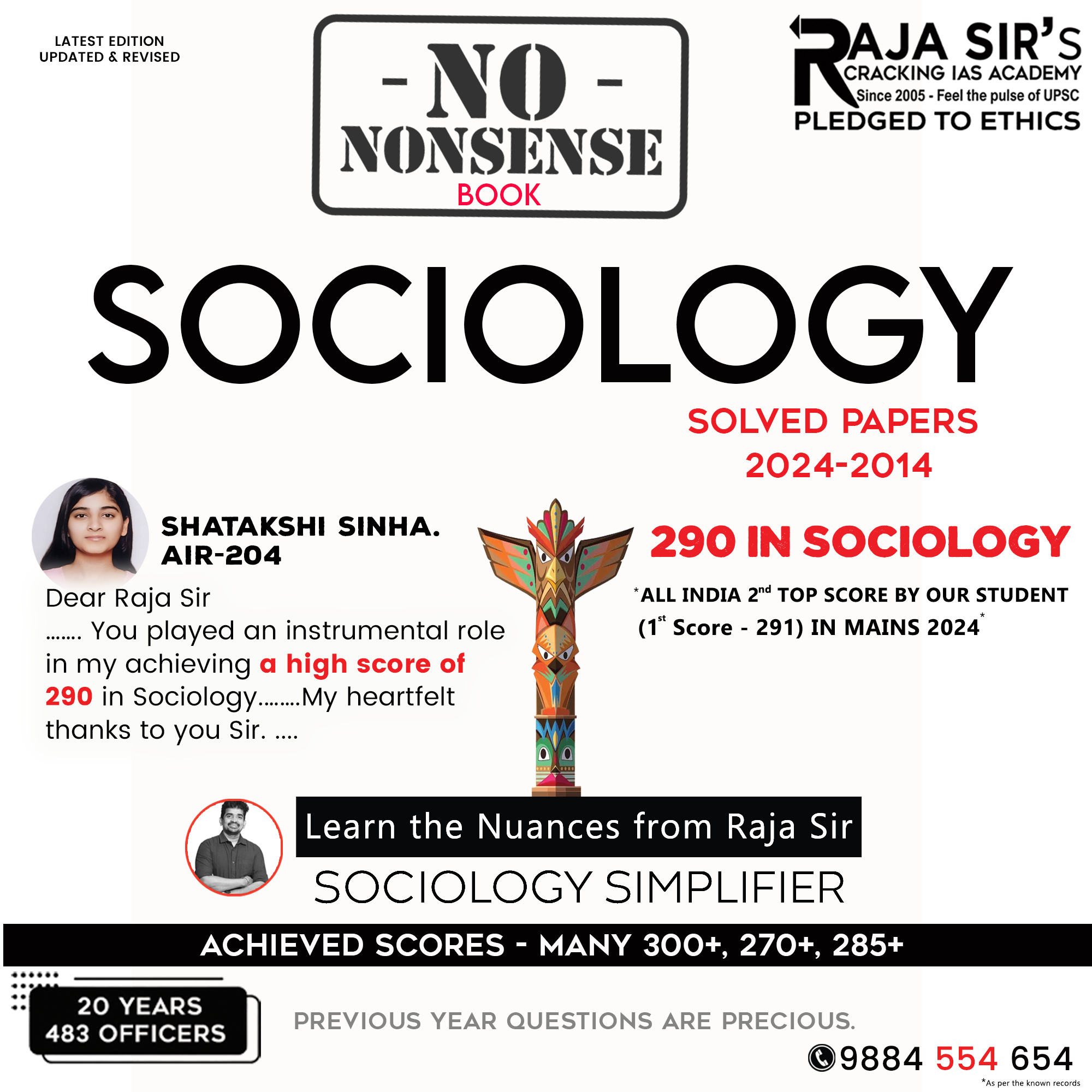- Home
- Prelims
- Mains
- Current Affairs
- Study Materials
- Test Series
 EDITORIALS & ARTICLES
EDITORIALS & ARTICLES
What is common sense? How are common knowledge and sociology related to each other?. (UPSC CSE Mains 2025- Sociology, Paper 1)

Common Sense
- Common sense is knowledge and awareness that is held communally (shared by majority of people). It does not depend on specialist education and in some respects states the obvious.
- It equates to the knowledge and experience which most people allegedly have, or which the person using the terms believes that they do or should have.
- Since common sense ideas are things “everyone knows to be true”, there can be no argument about their validity. A major problem with common-sense explanations is the fact that they effectively close-down any possible counter argument.
- Sociological knowledge on the other and hand, has greater validity than most forms of commonsense knowledge. Sociologists try to base their statements about human behavior on evidence rather than simple assumption.
Common Knowledge and Sociology Relationship
- Sociology is concerned with studying many things which most people already know something about. Everyone will have some knowledge and understanding of family life, the education system, work, the mass media and religion simply by living as a member of society. This leads many people to assume that the topics studied by sociologists and the explanations sociologists produce are really just common sense: what ‘everyone knows’. This is a very mistaken assumption.
|
Common Sense view of Poverty People are poor because they are afraid of work, come from `problem families'' are unable to budget properly, suffer from low intelligence and shiftlessness. |
Sociological Explanation of Poverty Contemporary poverty is caused by the structure of inequality in class society and is experienced by those who suffer from chronic irregularity of work and low wages. |
- Sociological research has shown many widely held ‘common-sense’ ideas and explanations to be false. The re-examination of such common-sense views is very much the concern of sociology.
- Common-sense explanations are closely bound up with the beliefs of a particular society at particular periods of time. Different societies have differing common-sense ideas. The Hopi Indians’ common-sense make them do a rain dance to encourage the rain gods. Common-sense ideas also change over time in any society. In Britain, people no longer burn ‘witches’ when the crops fail, but seek scientific explanations for such events.

Not all the findings of sociologists undermine common sense, and the work of sociologists has made important contributions to the common-sense understandings of members of society. For example, the knowledge which most people have about the changing family, with rising rates of divorce and growing numbers of lone parents, is largely due to the work of sociologists. However, sociology differs from common sense in three important ways:
- Sociologists use a sociological imagination. This means that, while they study the familiar routines of daily life, sociologists look at them in unfamiliar ways or from a different angle. They ask if things really are as common sense says they are.
- Sociologists re-examine existing assumptions, by studying how things were in the past, how they’ve changed, how they differ between societies and how they might change in the future.
- Sociologists look at evidence on issues before making up their minds. The explanations and conclusions of sociologists are based on precise evidence which has been collected through painstaking research using established research procedures.
- Sociologists strive to maintain objectivity and value freedom in their work.
It’s often said that women are naturally nurturing and men are naturally assertive. These ideas are treated as “common sense,” rooted in biology. But sociology shows that gender roles are socially constructed, not biologically fixed. From childhood, boys and girls are taught different behaviors through toys, media, and family expectations. These cultural influences shape how individuals express themselves and what roles they pursue. For example, women may be steered toward caregiving professions not because of innate traits, but because of societal norms. Sociology reveals that gender is fluid and shaped by context—not destiny.










 Latest News
Latest News General Studies
General Studies